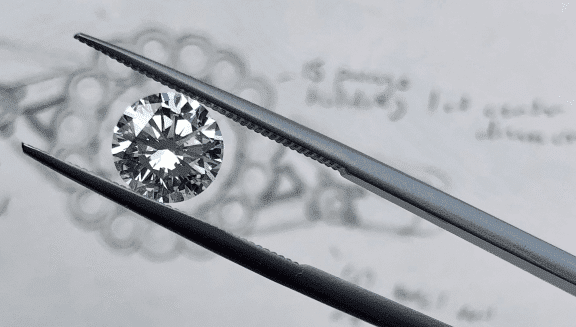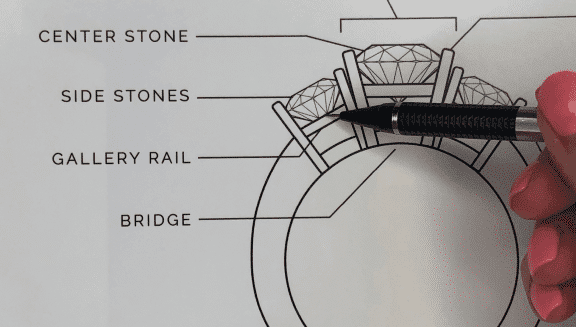The Best Stones For Your Engagement Ring
When buying an engagement ring, considering durability is just as important as choosing a style. Right now, we’re seeing a lot of rings being marketed as engagement rings, but they contain stones that are not strong enough to be worn every day. While from an aesthetic standpoint these stones are beautiful, they’re not the best stones for engagement rings. So before you fall in love with a moonstone, turquoise, or other non-diamond choice, educate yourself on the best choices for your center stone, and the ones that you shouldn’t consider under any circumstances.
The Science Behind The Best Stones
The Mohs Hardness scale is a scientific scale used for identifying gems and minerals based on their “hardness”, or resistance to being scratched. Stones that are categorized on the Mohs scale a seven or higher in hardness are an optimal choice for jewelry like engagement rings that are intended for everyday wear. Trendy stones like moonstone and opal is that they considered “soft” and have a high risk of breaking, chipping, and having water erosion affect the inside of the stone. Weaker stones can still be worn as fashion jewelry for special occasions, but for long term wear, they cannot be worn every day.

According to the Moh’s Scale of Hardness diamonds are the hardest of all stones. Rubies, and Sapphires (also known as corundum) are not far behind and are still considered to be hard stones.
Fashion Jewelry Stones vs Fine Jewelry Stones
While we don’t recommend all stones to be used for engagement rings, there are some that are specifically suited to last a lifetime and beyond. Stones that are scaled from seven to ten include diamonds, moissanite, and certain gemstones. So contrary to popular belief, diamonds aren’t the only stones that are forever, sapphires, rubies, morganite, alexandrite and emeralds are still a unique and visually interesting choice to include in an engagement ring. In our studio, right now we are seeing that Montana Sapphires and Morganite are rising in popularity and have been a trendy, yet durable choice to use when designing an engagement ring.
Best Settings for Engagement Ring Stones
When shopping for an engagement ring it’s also important to consider the setting for your center stone and accent stones. Larger prongs on an engagement ring ensure that the stones will be secured in place and better protected from everyday bumps and scuffs. Little pave accent stones that are 1mm and under are more likely to fall out, making for a pretty high maintenance ring that will require replacing stones over time. While tiny stones are very delicate looking and appealing they should be avoided unless you don’t mind the the loss of precious stones. When picking out an engagement ring be sure to pick out stones that are at least 1.5mm and make sure to take to your jeweler about the most secure settings for your stone. Besides strong prongs, we also like bezel set center stones like The Abby.
Here at Abby Sparks Jewelry we’re dedicated to designing and making rings that can last a lifetime. For each engagement ring, we carefully consider the best stone choices, and design. These points are important to consider in order to avoid the pitfalls that could potentially cause a ring to fall apart in the future. So trust us when we say that you need to make sure to evaluate all of the elements of a stone’s characteristics to determine if it is a good fit for you. In our custom design process we take the time to walk you through all of the options so that you aren’t purchasing jewelry blindly. If you have an idea of stone you’d like to use in your custom engagement ring, book an appointment with us today.







Comments